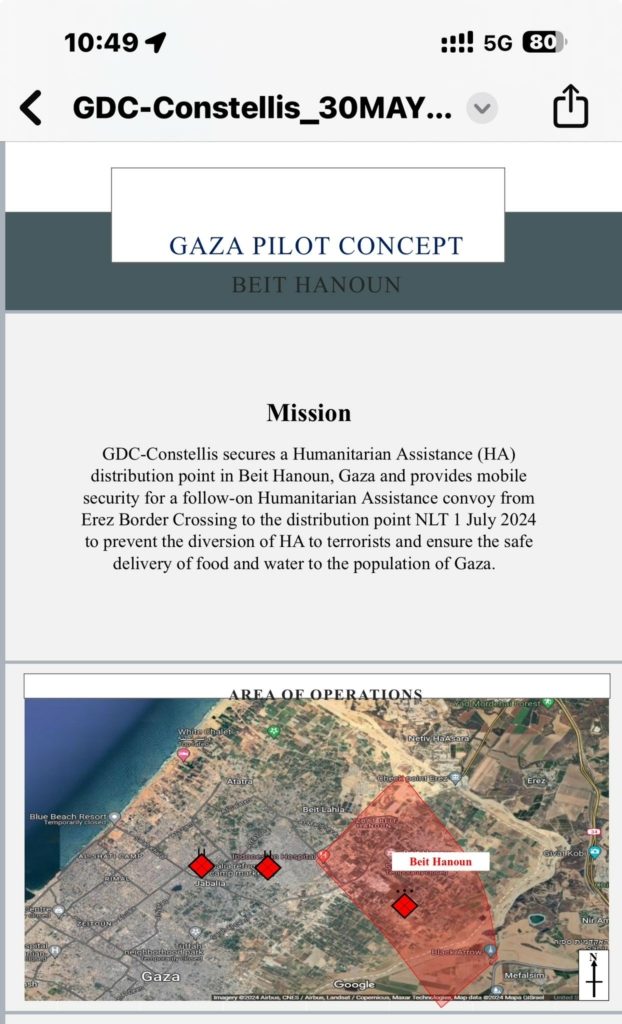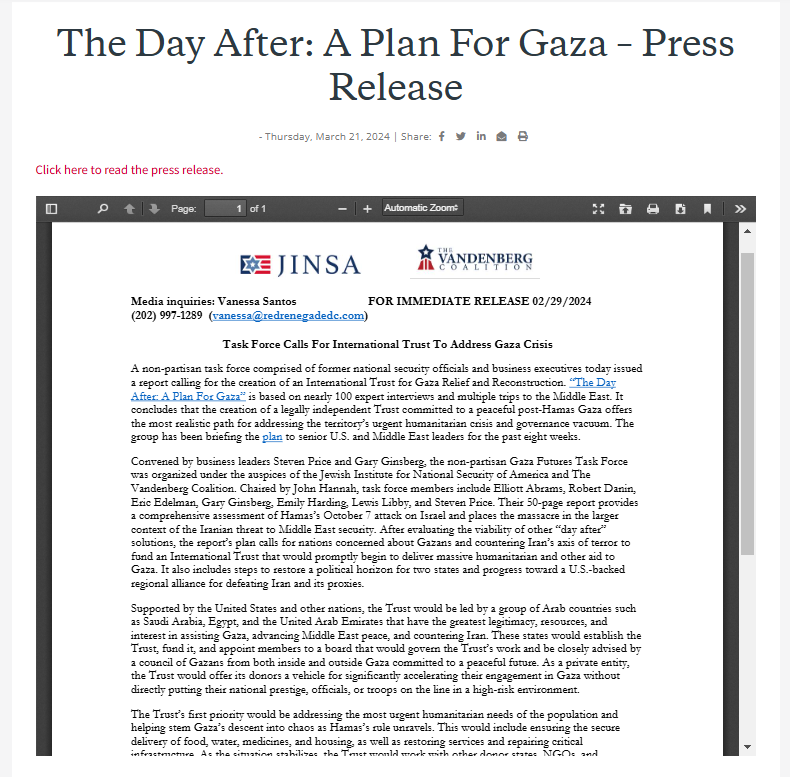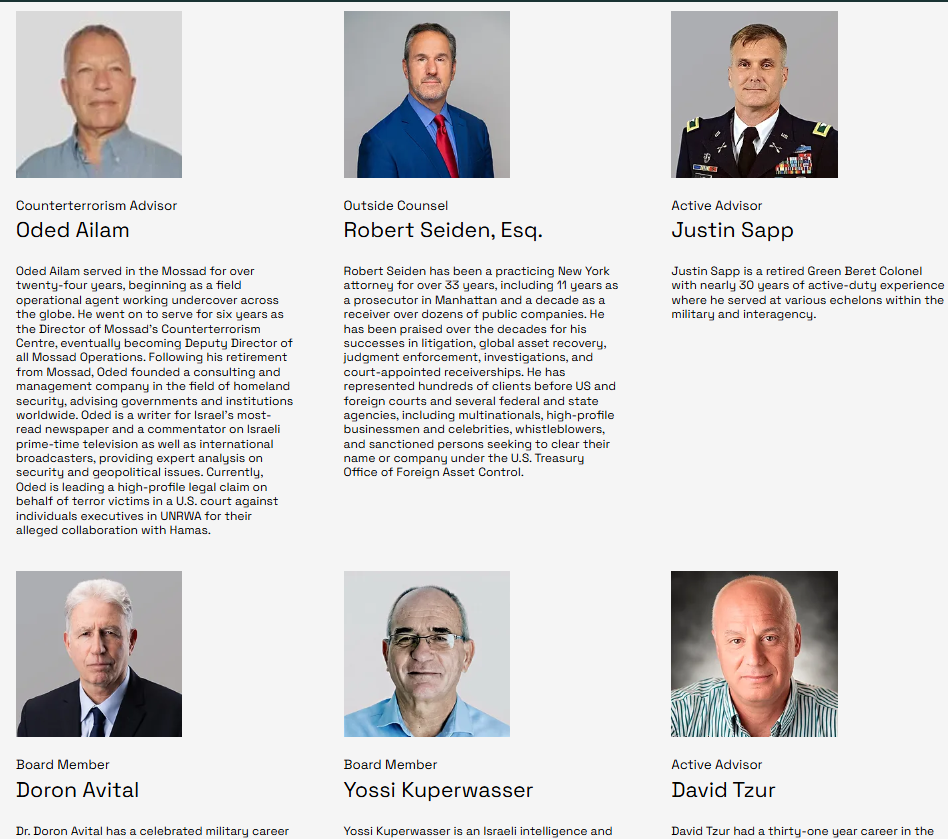An American company with potential oversight of aid distribution in Gaza has proposed a controversial plan to isolate neighborhoods in the region with walls, reminiscent of the “gated communities” model implemented during the U.S. occupation of Iraq. The company, Global Delivery Company (GDC), which describes itself as the “Uber of war zones,” confirmed the proposal to Arabi Post.
This plan, involving collaboration with private security firms, notably a successor to the infamous Blackwater group, has already faced backlash from Palestinian factions, with Hamas explicitly warning against any attempts to interfere with Gaza’s internal affairs.
The Proposed Plan: Segregating Gaza
GDC, led by Israeli-American businessman Moti Kahana, has outlined a plan that aims to transform Gaza neighborhoods into “small walled zones” under strict security measures. The company’s proposal includes:
-
- Clearing Resistance Fighters: Israeli forces would remove resistance fighters from targeted neighborhoods.
-
- Building Enclosures: Walls would be erected within 48 hours to isolate these areas.
-
- Biometric Screening: Residents would undergo biometric checks (e.g., fingerprint scans) to control entry and exit.
-
- Private Security Oversight: Aid convoys to these neighborhoods would be protected by private security firms, operating alongside the Israeli military.
Kahana has promoted the concept as creating “safe humanitarian bubbles” within Gaza, a term that echoes the “secured communities” implemented during the Iraq War by General David Petraeus.
Parallels to the Iraq Model
GDC explicitly acknowledged the influence of the Iraq War model, revealing that the plan takes inspiration from General Petraeus’ strategy during the U.S. occupation of Iraq between 2007 and 2008. Petraeus’ counterinsurgency approach involved:
-
- “Cleansing” areas of insurgents.
-
- Establishing tight security control.
-
- Erecting walls to isolate neighborhoods.
-
- Creating gated communities monitored by biometric systems.
The U.S. applied this strategy in cities like Fallujah and Baghdad, constructing walls and checkpoints that restricted movement and transformed neighborhoods into isolated zones. While U.S. officials claimed the plan reduced violence, residents reported severe hardships, including restricted movement and disrupted livelihoods.
GDC proposes a similar approach in Gaza, starting with the northern town of Beit Hanoun.




Security Firms and Militarized Aid
To implement the plan, GDC plans to collaborate with Constellis, an American security firm. Constellis, a successor to Blackwater, has a controversial history of alleged human rights abuses during its operations in Iraq.
Constellis specializes in providing security for high-risk zones and has extensive ties to military and intelligence networks. In Gaza, it would oversee:
-
- Security for aid convoys.
-
- Protection of “humanitarian bubbles.”
-
- Containment measures for potential unrest.
While GDC describes itself as a logistics company, critics point to its readiness to use force if necessary. Kahana himself has publicly warned against interference with aid operations, stating: “We will send a clear message to Gaza: don’t mess with us.”
Resistance and Local Backlash
The plan has drawn strong opposition from Palestinian factions. Hamas has condemned the proposal, labeling it an extension of Israeli efforts to fragment Gaza and disrupt its internal unity. The group has vowed to thwart any attempts to impose such measures, calling them a violation of Palestinian sovereignty.
Efforts to enlist local Palestinian leaders or tribes in support of the plan have also failed. Previous attempts by Israeli authorities to establish alternative governance structures in Gaza, such as engaging with tribal leaders, were met with rejection. Tribal representatives have consistently refused to undermine the existing political framework in Gaza.
Alignment with Israeli Military Strategies
GDC’s proposal aligns closely with strategies promoted by Israeli Defense Minister Yoav Gallant, who has suggested dividing Gaza into multiple administrative zones (“security bubbles”). These plans aim to achieve:
-
- Control over humanitarian aid distribution.
-
- Separation of Gaza into fragmented enclaves under tight supervision.
-
- Removal of Hamas’ influence from critical areas.
Gallant’s proposal includes international involvement in the security and administration of these zones, with private security firms playing a central role.
Deep Ties to Israeli and American Interests
GDC’s leadership team and partnerships further raise concerns about its motives. Key members of the company include:
-
- Oded Ailam: A former Mossad officer with a background in counterterrorism.
-
- Yossi Kuperwasser: A former head of Israeli military intelligence research.
-
- Doron Avital: A former Israeli special forces commander.
Additionally, GDC partners with influential pro-Israel organizations such as the American Jewish Committee (AJC) and the Israeli-American Council, both of which advocate for policies supporting Israeli control over Palestinian territories.
Implications and Humanitarian Concerns
Critics argue that GDC’s plan would deepen the humanitarian crisis in Gaza, likening it to the U.S. experience in Iraq, where similar strategies caused widespread suffering and resentment. While proponents of the plan claim it would enhance security and streamline aid distribution, its militarized approach and reliance on private security firms risk exacerbating tensions.
Moreover, the plan’s focus on isolating Gaza neighborhoods undermines broader efforts for a political resolution to the conflict, entrenching divisions and further restricting Palestinian autonomy.
Sunna Files Free Newsletter - اشترك في جريدتنا المجانية
Stay updated with our latest reports, news, designs, and more by subscribing to our newsletter! Delivered straight to your inbox twice a month, our newsletter keeps you in the loop with the most important updates from our website












